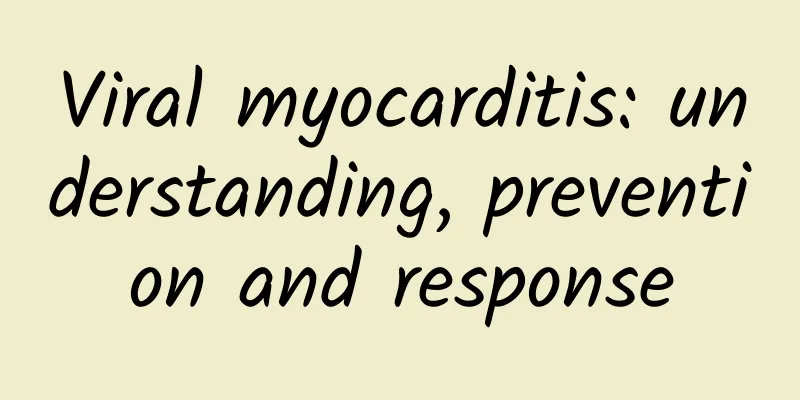What to do if milk swelling occurs during weaning

|
As the baby grows up, every breastfeeding mother and child will face the problem of weaning. Weaning is a relatively difficult process for both the baby and the mother. The baby will cry and make a fuss, and the mother will experience the pain of milk engorgement. Severe milk engorgement may also cause mastitis. Therefore, we should take proactive measures to relieve the pain. So, what should I do if my milk swells up in the later period of weaning? Let’s take a look together below. 1. Weaning itself is a process. In order to reduce the occurrence of milk engorgement, the amount of food given to the baby should be gradually reduced. The mother's breast milk will gradually decrease, which will relieve the pain of milk engorgement. 2. In the later period of weaning, mothers should pay attention to their diet, eat less milk-producing foods, drink less nourishing soup, and drink maltose if the bloating and pain are severe. 3. Mothers who experience severe milk swelling and pain in the late weaning period can extract some breast milk to relieve the swelling and pain. It should be noted that you don't have to drain it all, but start from the shallow end and gradually go to the deep end, squeezing out less each time. 4. Milk increases in the later period of weaning. Mothers can use a cotton towel to warm their breasts. Heat can improve breast circulation and is beneficial to breast health. When applying heat, be careful not to overheat to avoid scalding the skin. 5. In the later stage of weaning, if there is milk swelling, you can also massage the breasts. There are many massage techniques. You can hold both sides of a breast with both hands, and then touch it lightly with your fingertips. 6. Mothers with severe engorgement and pain can take milk-reducing medicine under the guidance of a doctor. Common milk-suppressing drugs include malt water, diethylstilbestrol concentrate, oils, etc. The milk-suppressing drug blocks the mammary gland from secreting milk, which can reduce the problem of breast swelling and pain from the source. During the period of milk engorgement after weaning, mothers can eat some milk-reducing foods, such as maltose, amaranth, eggplant, etc. The diet should be light in taste and avoid greasy and irritating foods to prevent stimulating milk secretion and increasing the duration of milk swelling. If the swelling still cannot be relieved after the mother has tried various methods to stop breastfeeding, she can go to the hospital for medical examination. |
<<: How much does a box of clotrimazole suppositories cost?
Recommend
Is it too early to do 4D at 21 weeks?
Four-dimensional color ultrasound is a more advan...
What does E6E7 positive mean?
e6e7 positivity mainly means hpve6e7 positivity. ...
Early menopause? Increased breast cancer risk? Some misunderstandings about IVF ovulation induction treatment...
"Nurse, my physical examination showed that ...
The most common site of tubal pregnancy
Generally speaking, if a woman has a fallopian tu...
What does 8mm endometrium mean?
An endometrium of eight millimeters does not mean...
Why is menstruation always early? These three factors cause it
The normal menstrual cycle of women is about 28 d...
Can I eat donkey-hide gelatin cake if I have breast hyperplasia?
Donkey-hide gelatin paste is a health-promoting f...
Can I hold my baby during confinement?
During the confinement period, many mothers like ...
How to treat cervical erosion with acetic acid whitening?
Although the incidence of cervical erosion is ver...
Piqora: Research shows that 75% of Pinterest visits are made by mobile devices, and the value of image marketing has increased by 25%
In the social networking market, image-based plat...
Can women drink Chinese medicine during menstruation?
Many women's bodies need conditioning, and mo...
Solutions for unwanted pregnancy
An unexpected pregnancy refers to an accidental p...
Bleeding after taking birth control pills
Some female friends may experience bleeding after...
What vegetables should I eat during the confinement period to increase milk production?
In the past, people thought that baby formula was...
Inheriting light and dedicating love: Here’s what you need to know about corneal donation
Corneal donation is a great act of kindness that ...









